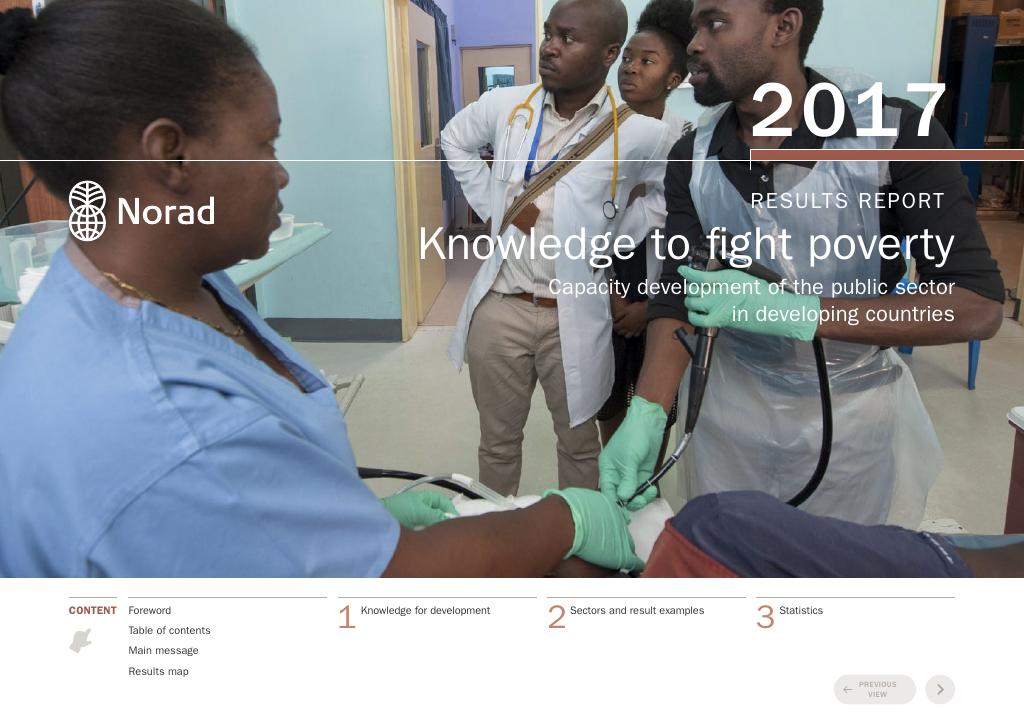Statusrapport
Knowledge to fight poverty Capacity development of the public sector in developing countries - Results report 2017
Capacity development of the public sector in developing countries is one of the most important contributions that Norway can make in the fight to eradicate global poverty by 2030. Capacity development is a matter of helping governments in developing countries to manage their natural resources in the best interests of their people, as Norway has done successfully with petroleum, fisheries and hydropower. It is about helping to establish legislation and judicial systems that endure, irrespective of who wins the next election, as well as fair systems of taxation and functioning national audits. It also concerns helping countries to build systems that enable them to use their revenues to provide health services and education to their populations. Capacity development of the public sector has long been a central aspect of Norwegian development cooperation with developing countries. This year’s results report summarises many of the experiences gained, and provides 22 specific examples of the results of these efforts. Much has gone well, some things less well. We need to learn from both. For example, Norway has helped to bring Mozambique closer to its objective of national electrification. In the early 1980s, while the civil war still raged, the Norwegian Water Resources and Energy Directorate (NVE) instituted a twinning arrangement with the energy authorities in Mozambique. When the civil war ended in 1992, the power grid covered 15 districts. It now covers 147 of the country’s 154 districts. This cooperation has helped in the training of more than eight hundred employees in various state institutions in Mozambique. That is what capacity development is all about.
